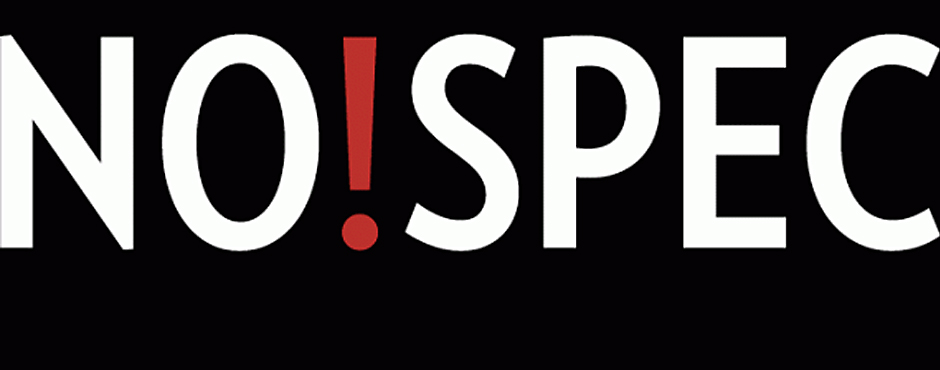To spec, or not to spec: that is the question
As a graphic designer, I understand the need to build your portfolio, expand your client base and stretch your creative muscles as much as possible. But from one creative professional to another, I feel compelled to urge you not to participate in spec (speculative) work – including design contests and crowdsourcing.
What is spec work? It’s submitting creative or graphic design to a potential client who hasn’t yet agreed to pay you for that work. As a result, that potential client can offer up any type of possible compensation, or, I should say, the possibility of compensation – without legally promising anything. And you may never see a dime.
Need an example?
All right, let’s say Company X launches a promotion calling for entries for the design of their new logo. In return, they’re offering a $250 prize to the winner – plus, the bragging rights that go along with having published work. What’s more, no experience is necessary. If you win, there is also the possibility to include that piece in your portfolio, opening the doors to many more opportunities in the future. Sounds great, right?
Well, there are a few more questions you need to ask yourself before proceeding with your contribution. First of all, why is Company X using a contest to develop their new logo? Why not just hire a designer? Do they not have the funds to actually pay for graphic design? Is this actually what my time and skills are worth? Will this really lead to more opportunities from bigger clients in the future?
Amateur or professional?
There are certain groups of individuals that are within the rank of amateur. Amateurs often are going through the process of participating in competitions in order to hone their skills and improve their rank. There is a judging panel that decides final rank and ultimately a winner. Typically, this also means no payment is received. Some of these include Olympic athletes, voice, dance or acting talent hopefuls.
On the other side of the spectrum, there are professionals. These individuals are paid to perform specialized tasks. Graphic designers are within this category. Unfortunately, as is common practice within the industry, there is a process called “pitching” to a potential client. This is generally understood, as mandated by clients, as being spec. To any agency, this means their creative potential is cut short by having only the limited information given within the brief. In addition, the agency may or may not be informed that they have competition. Ultimately, it is the time, concepts and designs of the creative team that are presented; yet, these individuals are the only ones around the boardroom table who will not be paid to be there.
Why is it that creative professionals should have to take on gratis work, that in effect, puts them in the category of an amateur?
Is spec work bad?
When it comes to spec work, “bad” may not be the right word to choose. “Unethical” would be more appropriate. “Risky” might be even better.
By not having a solid agreement in place between the designer and client, there’s greater risk for the designer. The designs offered up could potentially be used without the designer’s knowledge, and he or she is by no means guaranteed compensation. Even the prize initially promised could end up being less than advertised. What at first seemed like a nice, shiny carrot could later resemble little more than scraps.
As a designer, you’re not the only one who may lose out from being part of a design contest. Spec work devalues the entire graphic design industry. It drives down the going rate for design work, while driving up the misconception that graphic design can and should be acquired as cheaply as possible. Put simply, it makes it difficult for everyone else in the industry to be respected for their worth.
We all make mistakes
Okay, so now you know a little more about spec work. Think back to that contest you entered a few months ago. You put a lot of hard work into that design, and sent it off with high hopes of being chosen as the winner, right? I’m guessing not much resulted from that entry. If you were lucky, maybe you got a “thank you” for a job well done. Does this sound familiar to you?
Everyone makes mistakes. What’s important is learning from them and passing on those lessons to others. Instead of entering contests, there are much more effective ways to build up your experience and credibility. If you haven’t already, get yourself on LinkedIn, visit your local design council, or talk to that friend-of-a-friend who knows someone in the industry. Fostering good relationships with your peers is a much more reliable way to further your career.
While we’re on the subject, here are some great resources for learning more about spec work:
• AIGA, the professional association for design (AIGA – USA)
• Society of Graphic Designers of Canada (GDC – Canada)
• No!Spec (international)
There are always different sides to the same story. This is my view. I’d like to know your view on spec work.

